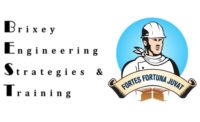How To Outsource Maintenance Tasks
By Jeff Dearduff
Many major industries in this country and around the world have outsourced maintenance tasks for many years. Some industries use the process exclusively. But rarely do you hear about this in the baking industry, at least not on a large scale. Sure, we’ve always had our refrigeration guys and boiler techs on contract, but have you ever considered subbing out some of the more common tasks generally handled by the maintenance crew?
In today’s competitive world of baking, when it comes to trimming overhead, many times the maintenance department is asked to give up a payroll slot or two with the expectation that this move will benefit the company’s overall bottom line. So many times, if a crew has grown to a certain size, there usually is a reason, and that reason usually is centered on workload requirements.
As a bakery maintenance manager, you may be faced with this dilemma already, or it’s right around the corner. Company management has asked you to immediately reduce your workforce, has held you up when you needed to hire for a vacancy or asked you to plan the future with less payroll. When this happens, you basically have three choices: (1) rollover and do as told (2) fight to keep things as they are just because (3) justify the need to remain as is through documentation and history. The solution to this dilemma might require a meld of all three choices.
So, what does this have to do with outsourcing? Well, when you are faced with getting the same amount of work done with a smaller payroll, outsourcing does become an option. How do you make it work? First of all, if you claim you have more hours of maintenance work than you have in manpower, you’d better be able to back up the claim with history and homework. If you can truly justify the need for more man hours, a managed plan that incorporates outsourced talent can turn this into a nice program for you.
Here are some thoughts on how you might bring the outsourcing element into your maintenance plan. When you look at your workload from a task perspective, you might rate the jobs on a scale from most critical to least critical. From your most critical list, you will find that you have some very important items that your crew handles. In a typical bread plant, those jobs might include preventive maintenance activities on dough mixers, dividers, proofers and ovens. The crew might see these as mundane tasks, but it’s your job to convince them that “PM” duties on these critical systems on down-days are the best way to have successful production days. Successful production days always result in a nicer overall workplace.
After the critical jobs are doled out to your crew, what is left? For starters, consider hiring a tech from your HVAC contractor that can come in on a regular basis to take care of the preventive maintenance on the building’s air handlers and air conditioning systems. Filter changes, coil cleaning and duct repair might be something your crew currently handles, but by handing this off, you can keep your group focused on the critical tasks.
Another area might be in your controls maintenance and minor projects. We already know that many of us will never be cleared to hire a controls specialist to have on our crew. Believe it or not, there are companies that can help you here, too.
Sometimes a little out-of-the-box thinking must be applied to this. Every major market in the United States — and most likely in every developed country — will have businesses with services to handle any of the work you need fulfilled. The key to your success will be to engage with some of these groups and have a person dedicated to your needs. This allows them to become intimate with your systems and issues.
Obviously, you will be able to find a variety of tasks that could fall into this opportunity, but you have to find the solutions in your local market. When you do and when you succeed, you most likely will cause a positive affect to the bottom line.
Editor’s Note: In this monthly column, Jeff Dearduff, director of engineering at East Balt Inc. in Chicago, addresses the responsibilities of the bakery engineer. Jeff got his start in the baking industry at Perfection Biscuit Co., now Aunt Millie’s. He is a member of the American Bakers Assn., the Baking Industry Sanitation Standards Committee, the American Institute of Baking and the American Society of Baking. You can contact Jeff at j.dearduff@comcast.net




